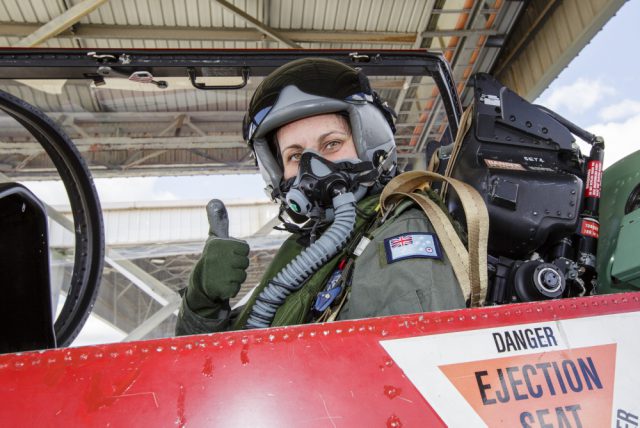WPS 2018: Navigating the operational gender agenda
Posted By Deanne Gibbon on March 23, 2018 @ 11:00

This article is the sixth in a series on ‘Women, Peace and Security’ that The Strategist will publish over coming weeks in recognition of International Women’s Day 2018. Eds.
One of the key challenges when working in the Women, Peace and Security (WPS) field in the Australian Defence Force (ADF) is the common misunderstanding about UN Security Council Resolution (UNSCR) 1325 and related resolutions.
WPS is quite separate to the services’ internal diversity and inclusion programs, and human resource activities intended to increase women’s representation in the ADF. However, there’s a nexus in that it’s difficult to increase women’s presence on ADF operations unless there are enough trained ADF women available to deploy.
Within a military context and when viewed through an operational lens, the UNSCRs provide guidance as to how militaries, security forces, humanitarian agencies, peacekeepers and enforcers, policy builders and other key stakeholders factor in, interact with and engage local populations in an area of operations. In simple terms, this is how the population interacts with and influences the operation and how the operation interacts with and influences the local population.
For military forces, the key premise of UNSCR 1325 and related resolutions is that failing to consider the needs, voices and circumstances of half of a population when planning, executing and measuring an operation’s effectiveness will have unintended, negative effects on that population over the short, medium and long terms.
Moreover, those negative effects will extend far beyond the life of an operation. Further, considering the needs of the entire population has proven to increase operational effectiveness and reduce risks to operating forces.
While responsibility for implementing UNSCR 1325 and related resolutions on military operations rests with commanders, the commanders will often be supported by trained gender advisors (GENADs), who may be placed at the operational or tactical level, or both. The GENAD is usually part of a commander’s special advisor staff, although this can vary.
In recent years, the ADF has played a strong regional and international leadership role in incorporating a gender perspective into military operations. That includes multilateral planning activities such as multinational force standing operating procedures for the Asia–Pacific region. This leadership was made possible by the Chief of the Defence Forces’ (CDF) commitment that the ADF would apply dedicated resources to meet our national and international obligations and to ensure that UNSCR 1325 and related resolutions are factored into all ADF operations from the strategic to tactical levels. This strategic commitment is reflected in Defence’s WPS implementation plan.
The CDF’s commitment resulted in the establishment of two key colonel-equivalent positions. One is the Director of the National Action Plan for Women, Peace and Security (DNAP WPS), which addresses WPS implementation at the strategic level. The second is the Senior Gender Advisor at Joint Operational Command (JOC), which focuses on operational implementation.
The positions work together to advance UNSCR 1325’s objectives. The DNAP WPS’ primary role is international and national senior stakeholder coordination and engagement, and the JOC GENAD’s role is to ensure that gender is considered at all stages in ADF and multinational operations and exercises.
The Army, Navy and RAAF also have dedicated positions at the lieutenant colonel–equivalent level to advance WPS within their own services by delivering service-specific doctrine, coordinating internal training and coordinating the assignment of trained GENADs for operations and exercises.
To date, more than 30 GENADs have deployed on operations and exercises.
The ADF’s first rotations of senior GENAD positions were the colonel-equivalent gender advisor for NATO’s Resolute Support mission and one of the first military GENAD positions in South Sudan.
The ADF also recently delivered the region’s first operational gender advisor course, which focused on training US, ADF and DFAT personnel to fulfil GENAD roles on Exercise Talisman Sabre 2017 (EXTS17). The ADF Operational Gender Advisor course was piloted in June 2017 after an extensive training needs analysis, design and development process.
The course was developed to ensure that sufficient numbers of ADF personnel are trained to incorporate gender considerations into the Joint Military Appreciation Process, and into the execution of operations, which is key to implementing a gender perspective on operations. The ADF course was also designed to meet the growing demand and need for trained GENADs on multinational, bilateral and Australian-led operations and exercises.
Student evaluations of the pilot course were overwhelmingly positive. The greatest test of the training, however, occurred during EXTS17. Newly graduated students were required to fulfil the GENAD role within a complex, high-tempo operational scenario and performed very well.
To meet the high demand for this training, HQJOC delivered a second pilot course in October 2017. The ADF’s Peace Operations Training Centre will deliver the course from late 2018.
Thanks to strong leadership by the Chief of Joint Operations, the CDF and the service chiefs, and to the efforts of those working in this important area, Australia is now positioned as a source of expertise in WPS. Other nations are looking to capitalise on the work done by the ADF.
‘Next steps’ include developing joint and service-specific doctrine, guides and tools to continue the ADF’s work and to contribute to the next iteration of Australia’s national action plan.
Article printed from The Strategist: https://www.aspistrategist.org.au
URL to article: https://www.aspistrategist.org.au/wps-2018-navigating-operational-gender-agenda/
Click here to print.